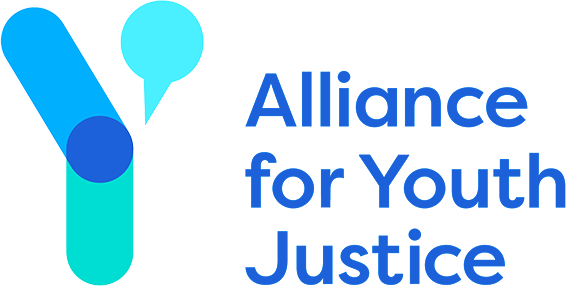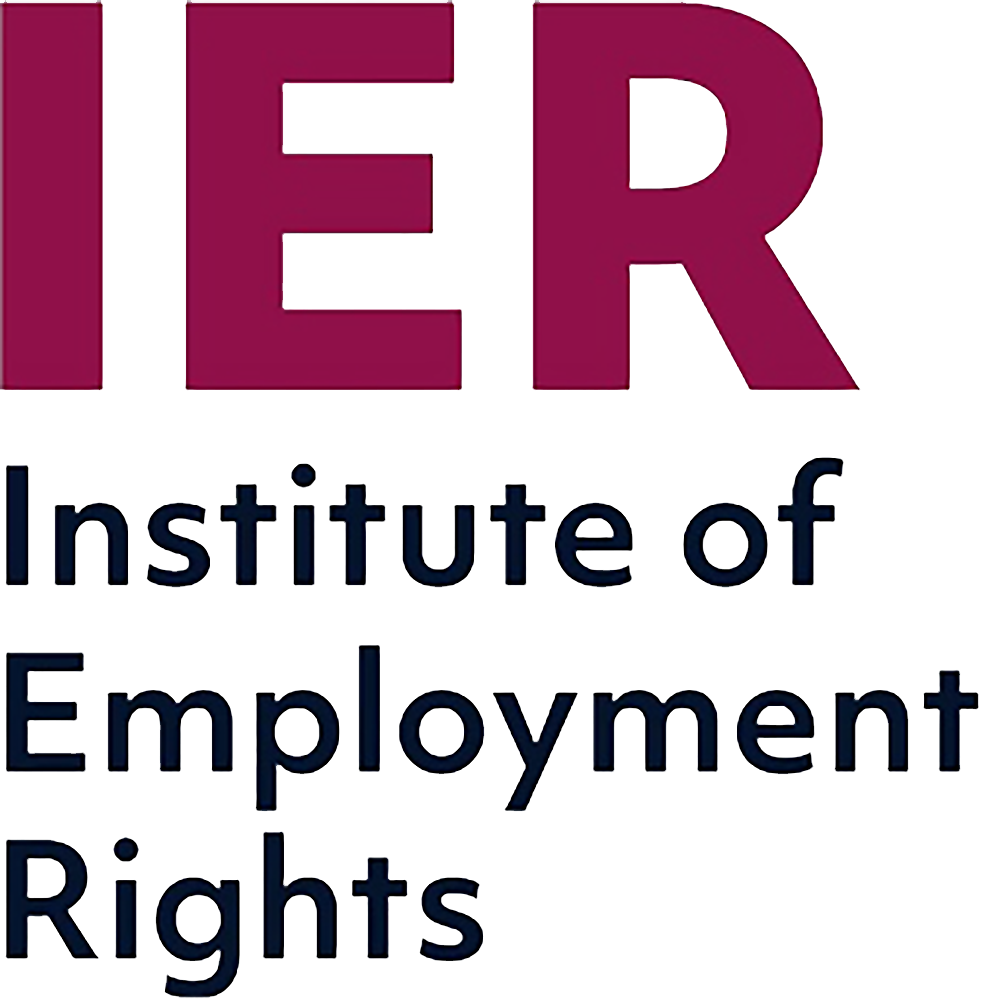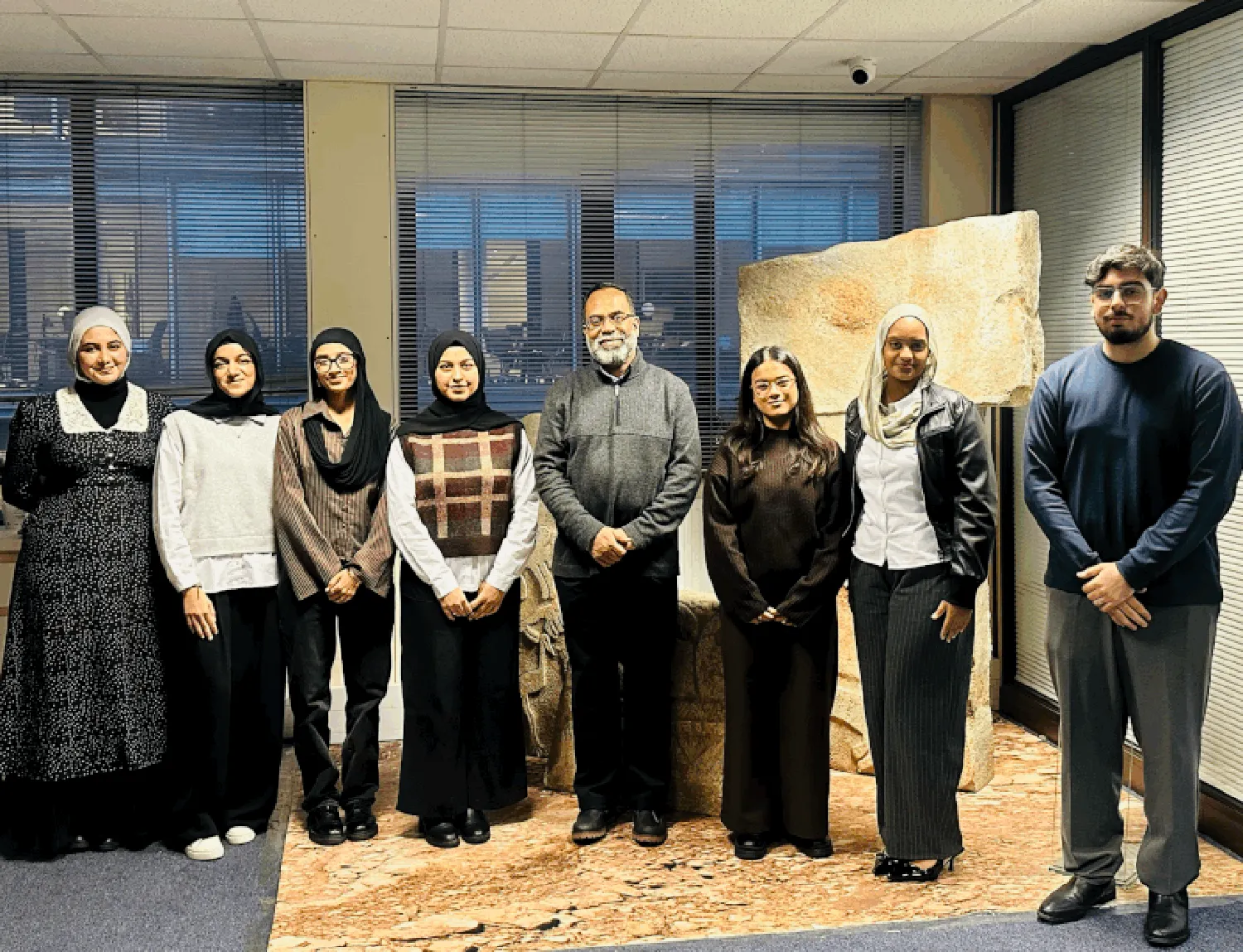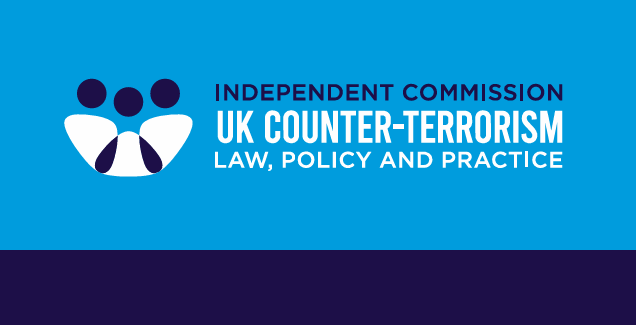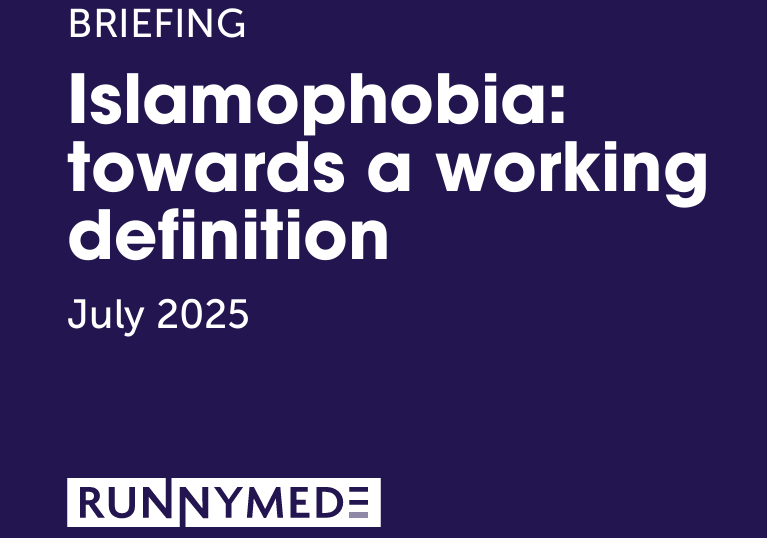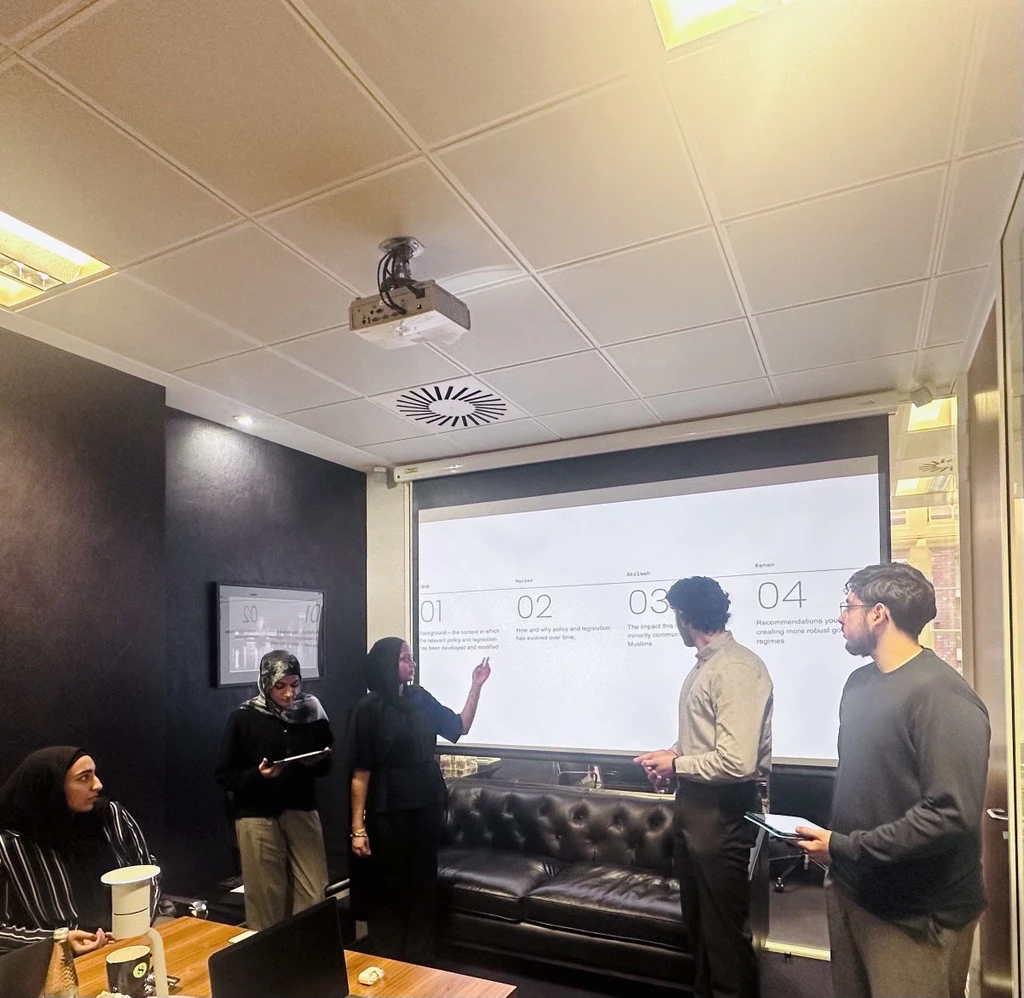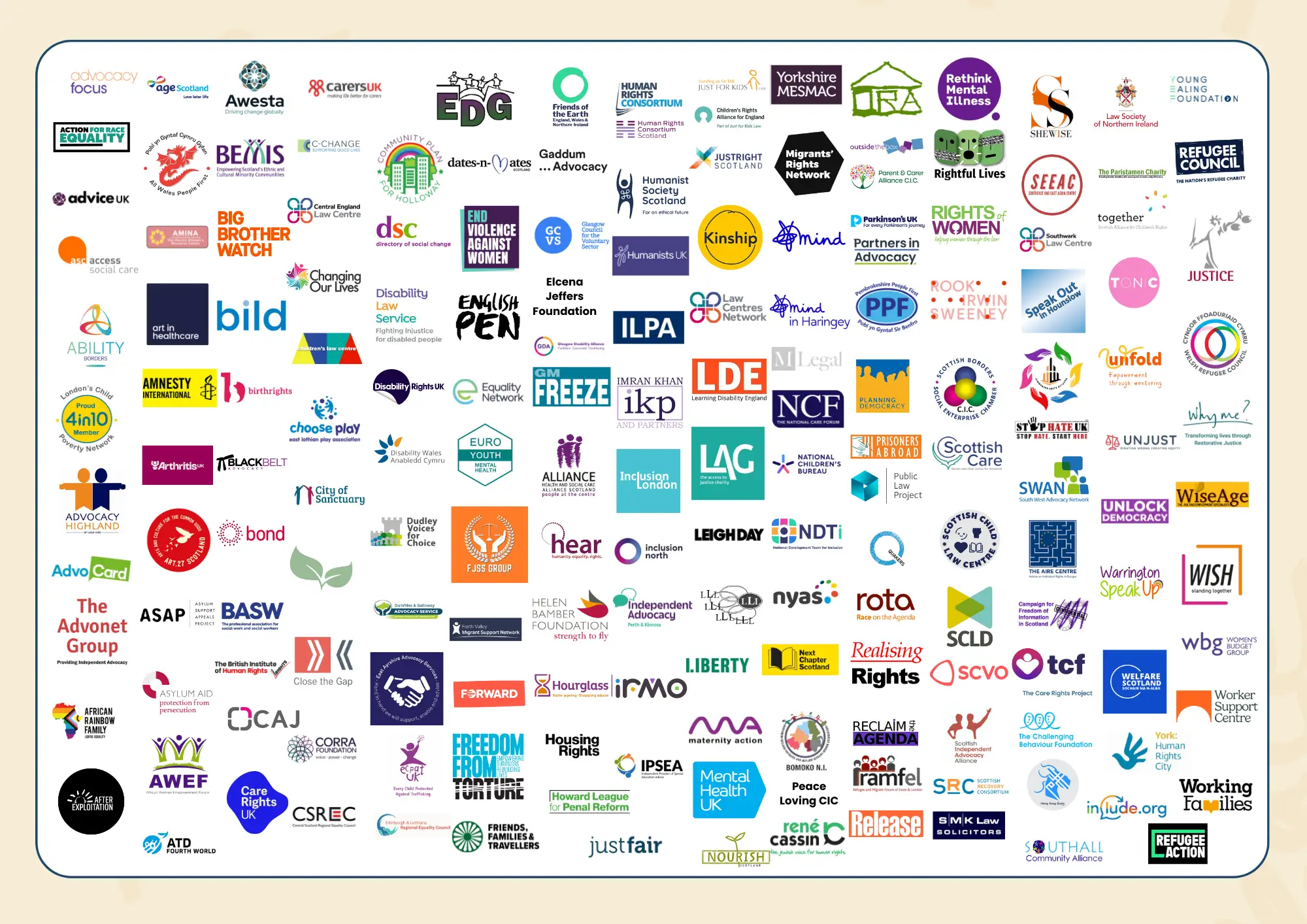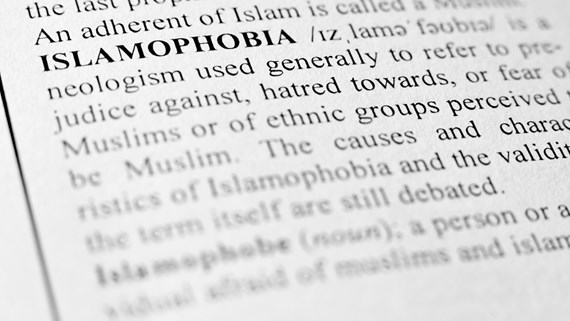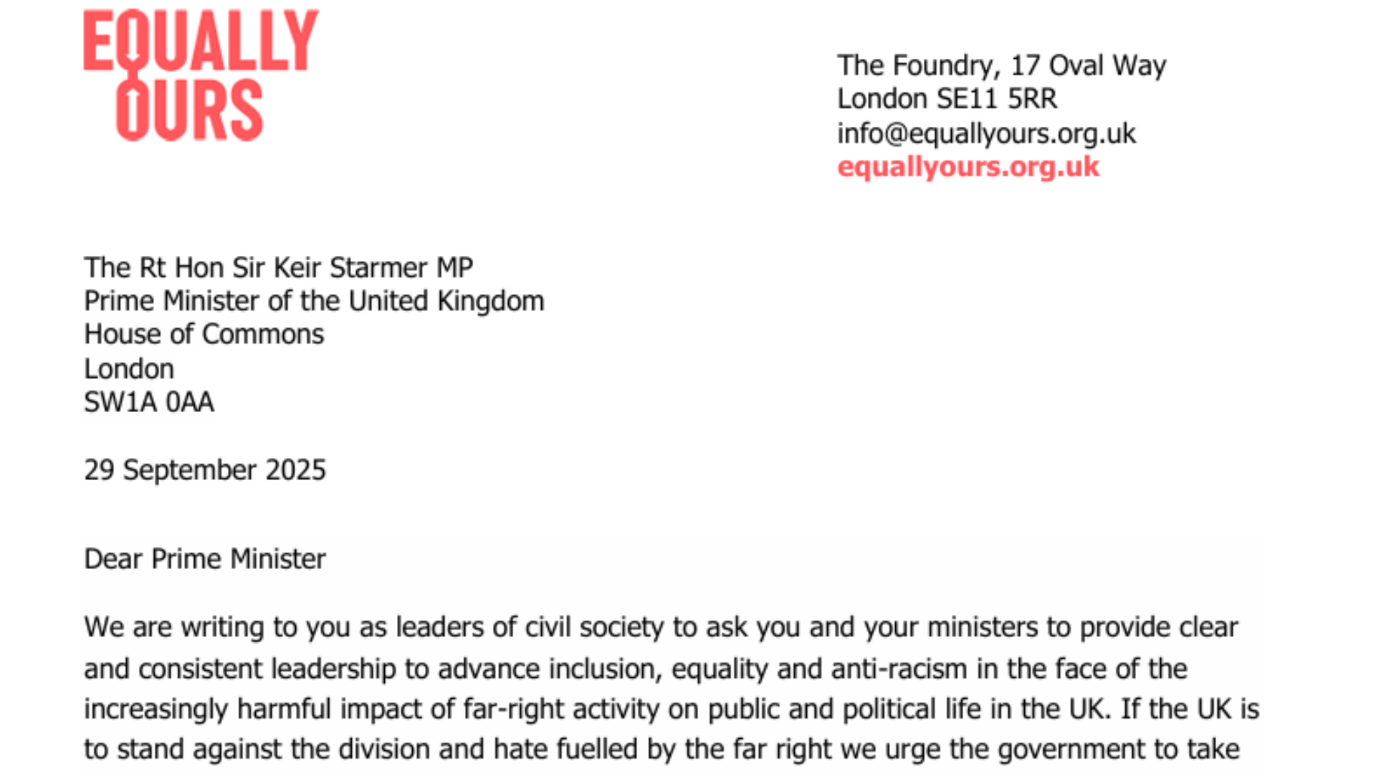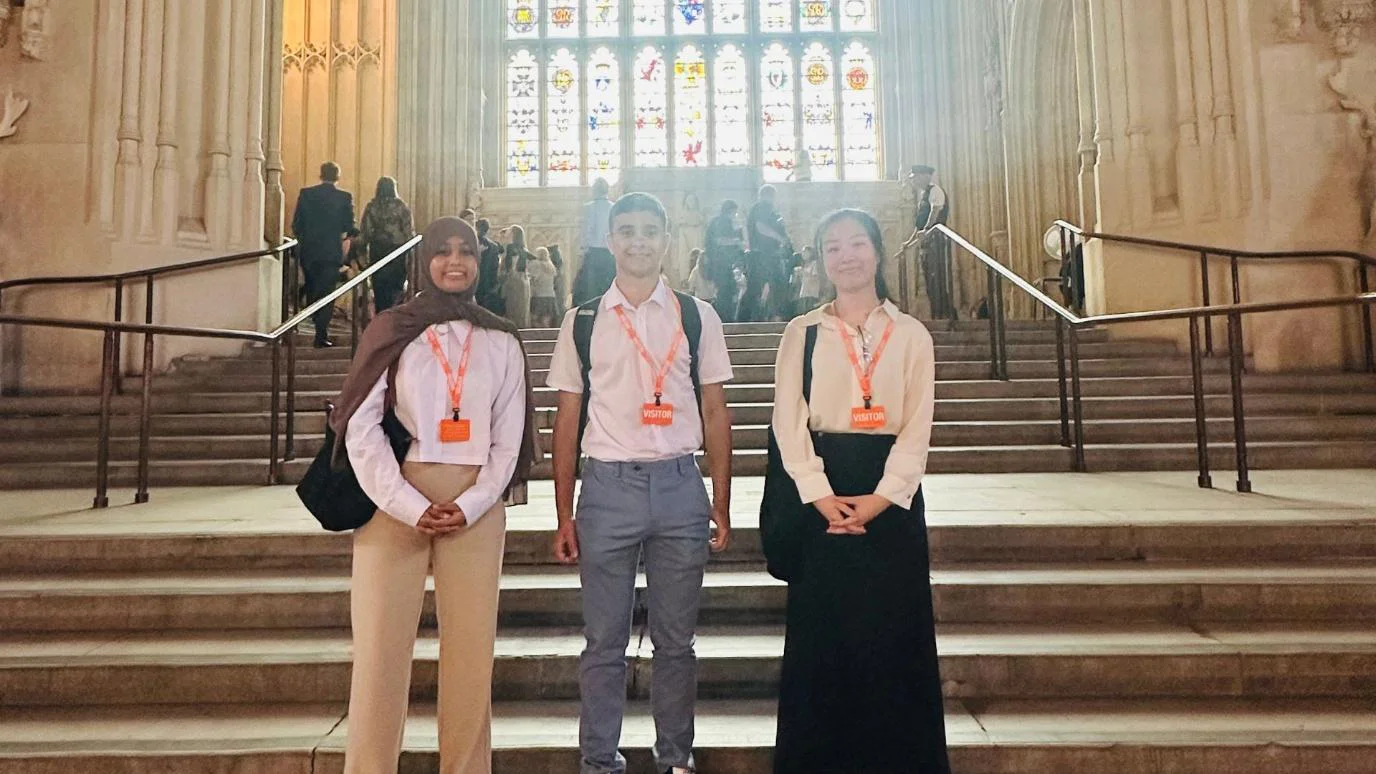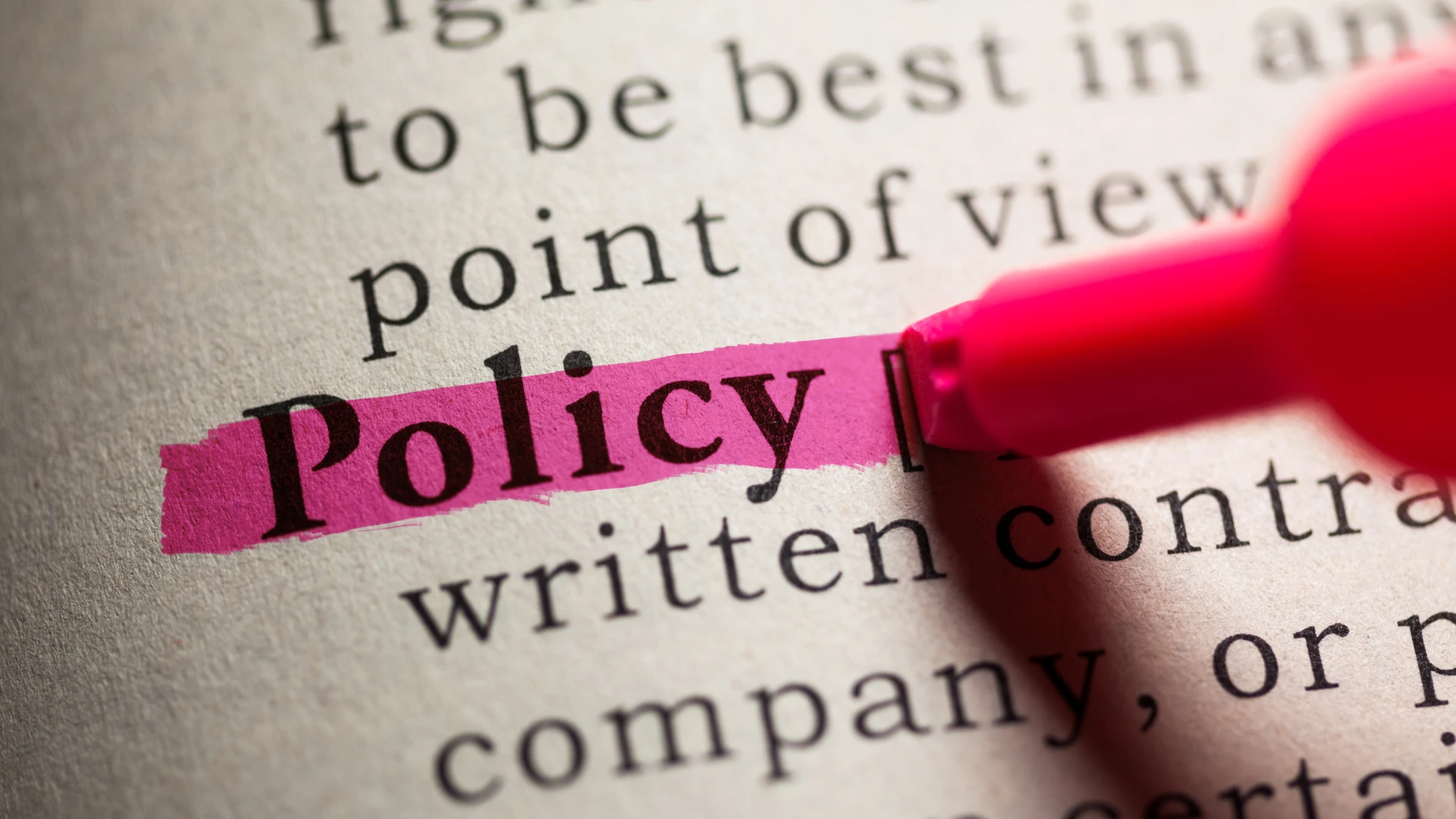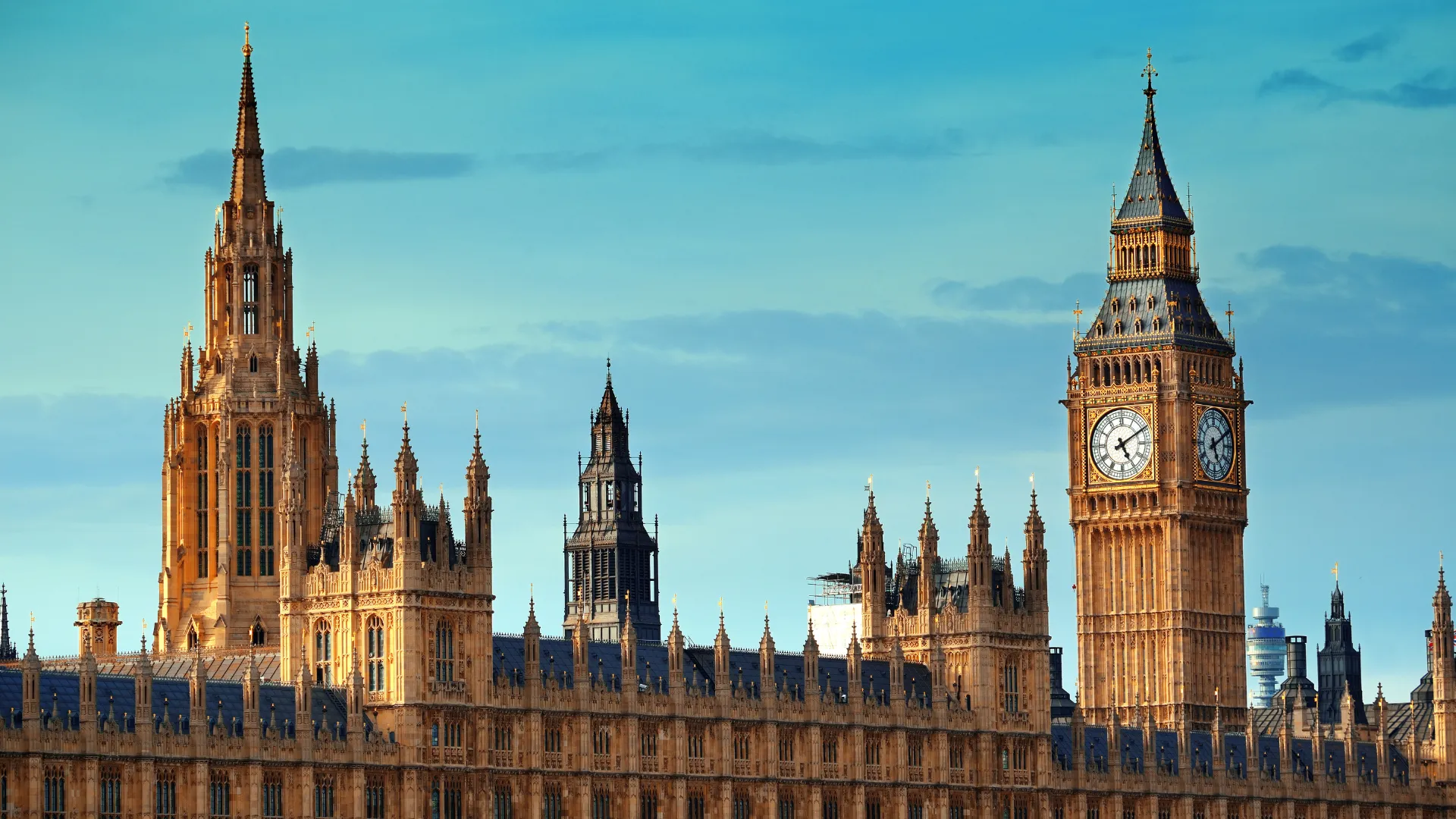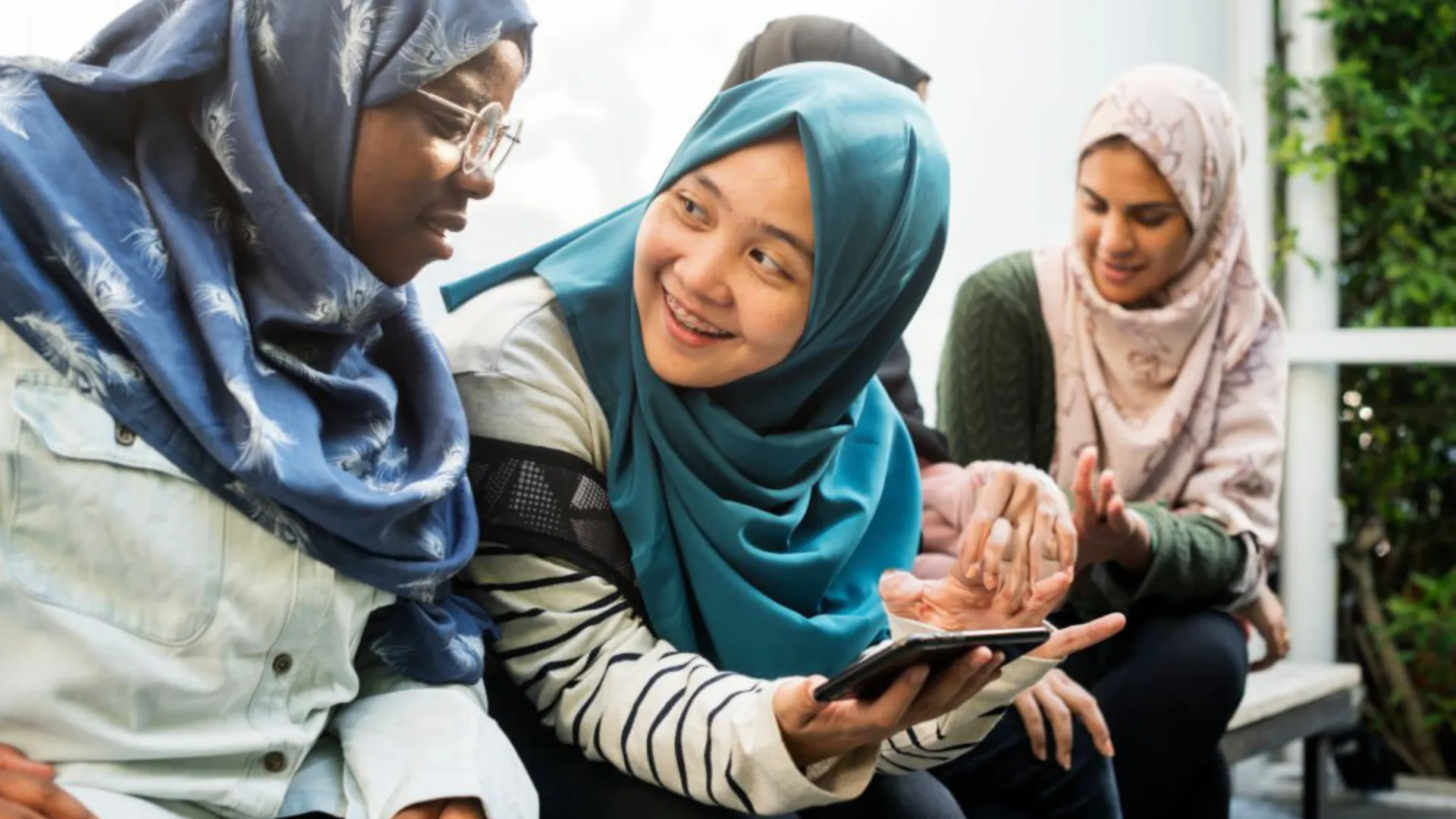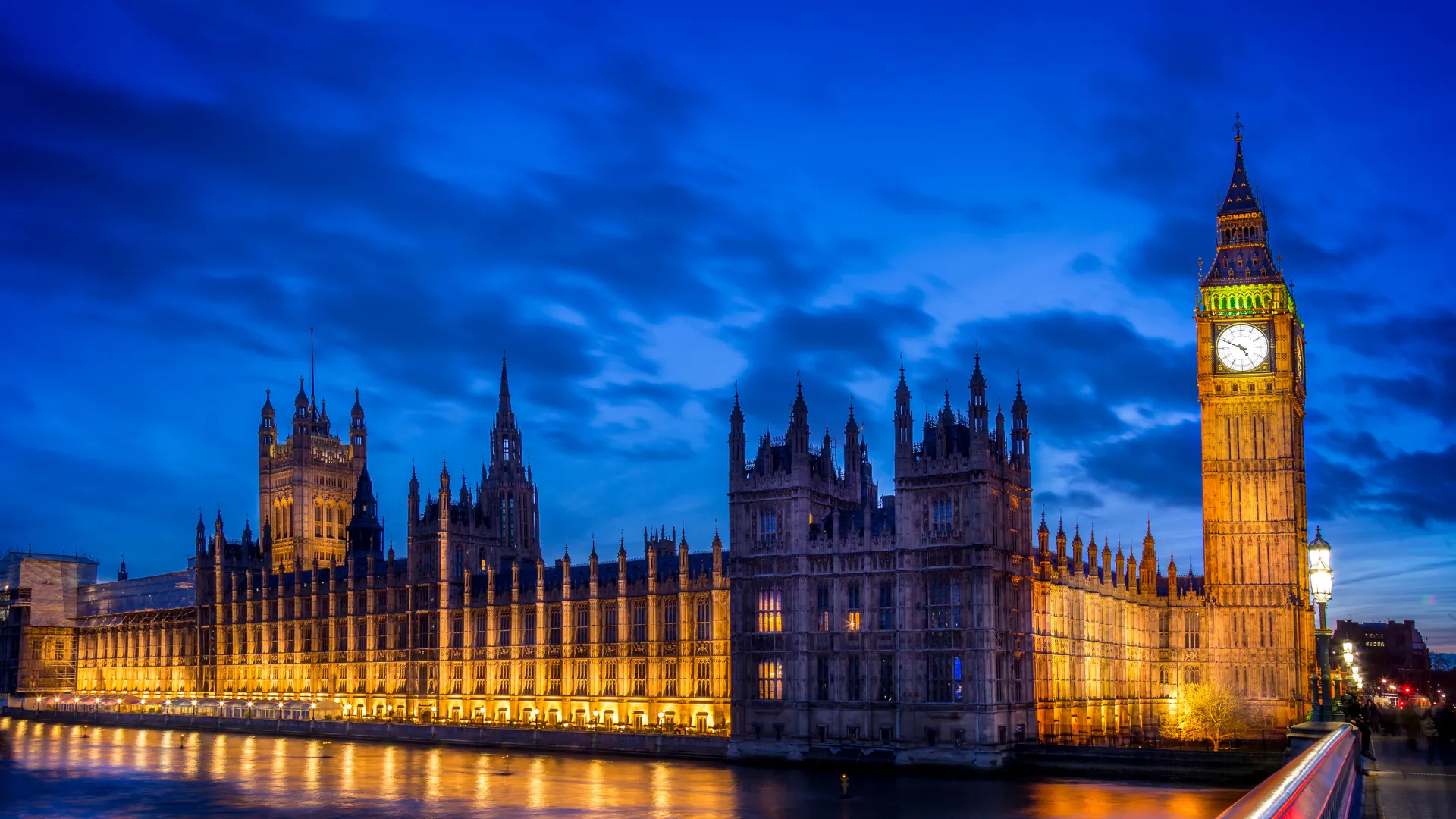Change Policy. Advance Rights.
Demand Equality.
Change Policy.
Advance Rights.
Demand Equality.
Legal advocacy for a fairer, freer future
We Are MLegal
We champion civil liberties and human rights through legal reform, policy engagement, and public advocacy.
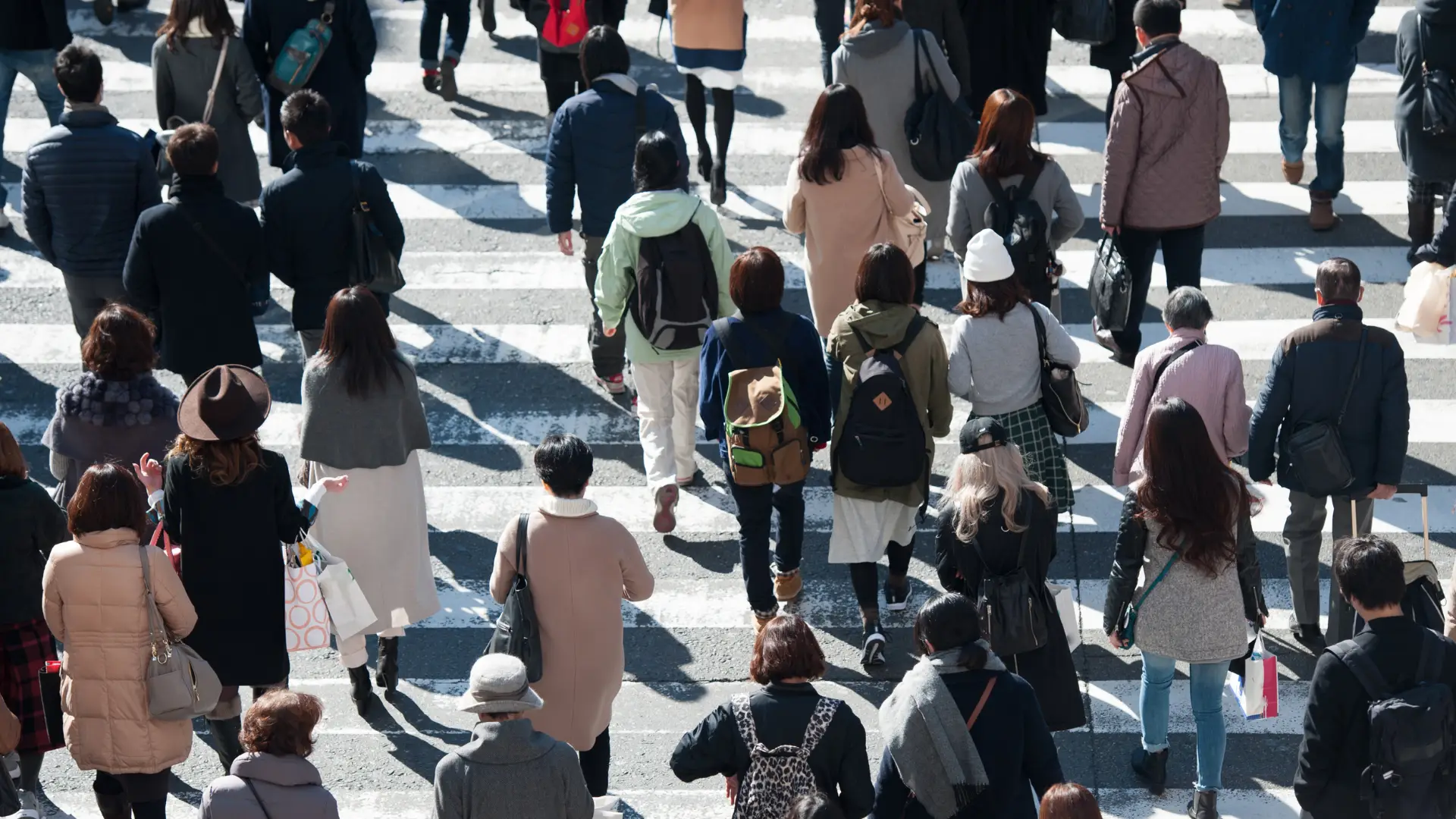
MLegal is a UK-based non-profit organisation committed to defending and advancing the rights of marginalised communities through strategic policy work, legal analysis, and advocacy.
Founded to challenge systemic inequalities and promote justice, we work at the
intersection of civil liberties and human rights. Our mission is grounded in a vision of a fair and inclusive society where communities are free from discrimination,
protected under the law, and empowered to exercise their rights fully.
We believe in the power of informed advocacy and community engagement to bring
about meaningful change. By working collaboratively with legal experts, policymakers, and grassroots organisations, MLegal stands as a voice for those whose rights are too often overlooked or compromised.
Mission & Values
At MLegal, our mission is to protect and advance the rights of marginalised communities in the UK through focused policy work, legal advocacy, and strategic engagement. We are committed to:
Equality
Ensuring that marginalised communities are treated fairly and are free from all forms of discrimination.
Freedom of Expression
Defending the right to express beliefs, identity, and opinions without fear or repression.
Human Rights
Upholding the fundamental rights and civil liberties that are essential to a just and democratic society.
Justice & Accountability
Challenging policies and practices that marginalise or criminalise communities, and demanding transparency from institutions.
Inclusion
Promoting a society where marginalised communities are fully included, valued, and empowered.
Equality
Freedom of Expression
Human Rights
Justice & Accountability
Inclusion
We work to address the systemic and institutional barriers that disproportionately impact marginalised communities, and we advocate for laws and policies that reflect fairness, dignity, and equal protection for all. We also collaborate with civil society groups, legal experts, and community organisations to build coordinated efforts toward systemic change.
Our Work
At MLegal, we focus on addressing the structural and institutional barriers that disproportionately affect marginalised communities in the UK. Our core work includes:
Policy & Legal Analysis
We scrutinise legislation and government policy to identify and challenge measures that erode civil liberties or marginalised communities.
Advocacy & Lobbying
We engage with policymakers, public bodies, and institutions to ensure that laws and policies uphold the rights and freedoms of marginalised communities. Through evidence-based advocacy, we work to influence decision-making processes at both local and national levels.
Strategic Interventions
We provide expert input through legal submissions, briefings, and consultations, helping shape public discourse and ensuring that the perspectives of marginalised communities are represented in key debates.
Education & Engagement
We develop accessible resources, deliver public education initiatives, and collaborate with civil society and academic partners to raise awareness of the human rights challenges facing marginalised communities in the UK.
Latest Articles
Our articles provide in-depth analysis and commentary on legislation and policy developments that impact marginalised communities in the UK. We produce briefings, legal responses, and research-led insights to inform public debate, support advocacy efforts, and equip allies with accurate, accessible information.
#Inclusion
At the end of last month, we marked a significant milestone as we welcomed our first cohort of MLegal Associates. We began the day by exploring a foundational topic: understanding Islamophobia. We opened with a discussion on how young people perceive Islamophobia, before delving deeper into its contemporary forms and the multiple dimensions through which it manifests. Together, we unpacked what current legislation covers, the gaps that still exist, and how these relate to direct and indirect discrimination, harassment, victimisation, perceptions, and association. Our cohort also engaged in a thoughtful examination of political narratives, focusing on how polarisation emerges and what it means to bring people together within political spaces. We explored the importance of policymaking, relationship-building, and navigating the complexities of the political landscape. We continued by looking at equalities frameworks, and later examined extremism, including the complexities and implications it presents. Well done to all the Associates in the cohort who were selected – we’re excited to support your journey ahead. Congratulations to: Kanan Dadashzade, Sahana Kalam, Hannah Pathan, Halil Karakus, Akilaah Rafeek, Iman Jaura, Hamza Ahmad, and Haroon Shah. A huge thank you to Yunus Emre Enstitüsü for generously providing us with space for this training session. We look forward to continuing this journey with our new Associates as they grow, learn, and contribute to shaping a fairer and more inclusive society.
#Justice & Accountability
MLegal is committed to navigating the complex challenge of balancing security imperatives with the protection of human rights and civil liberties of all citizens. It, therefore, recognises the important work of the Independent Commission on Counter-Terrorism and welcomes its report. MLegal welcomes and supports many of the insights and recommendations in the report, particularly on strengthening oversight and accountability in counter-terrorism work, narrowing the definition of terrorism, reforming the Prevent strategy, ensuring proportionate use of counter-terrorism policing powers, establishing clearer evidential thresholds for terrorist intent in precursor offences, safeguarding fairness in closed material procedures, balancing national security and democratic rights in proscription cases, balancing security with the needs of humanitarian organisations in counter-terrorism financing provisions, and restoring fairness and proportionality in citizenship laws. There are other insights and recommendations in the report that we will further consult the Muslim communities on – communities that have been particularly impacted by terrorism legislation, policy and practice. Whilst we appreciate the great work that the Independent Commission has undertaken and reported on, we note that the Commission’s focus was predominantly on the Prevent and Pursue aspects of CONTEST, the UK’s strategy on counter-terrorism. The report does not cover the Protect and Prepare elements of the strategy. Recent activities by the far-right, and consequently the sharp rise in hostilities against Muslim communities, underscore the urgent need to develop all elements of the counter-terrorism strategy more comprehensively, particularly in terms of protecting potential Muslim community targets from any large-scale terrorist atrocities and preparing for any such eventuality. Thus, we will also be consulting Muslim communities on these aspects of the counter-terrorism strategy. In the coming weeks, therefore, MLegal will consult not only on what is in the Commission’s report but also what is missing from it. We will be consulting with experts and grassroots organisations and leaders for their insights. We feel this consultation is essential to ensure that our response to the report reflects the experiences, concerns and thoughts of those who are most significantly impacted by the current counter-terrorism regime. In due course, therefore, MLegal will provide a more comprehensive response to the Commission’s report that reflects this consultation and provides decision makers greater insight into how the report and its recommendations have been received by the communities possibly most impacted by its contents.
#Equality#Inclusion
Earlier this year, MLegal proudly funded the Runnymede Trust’s report Islamophobia: Towards a Working Definition. In the report, the Runnymede Trust explains: “Over the past two decades, our understanding of Islamophobia has evolved significantly. Islamophobia is more than just an irrational fear or hostility towards Islam, as it was initially described in early definitions of the term. It is now widely recognised as a form of racism towards Muslims that is deeply embedded in societal structures and systems of power. Reflecting on the current context, it is clear that Islamophobia extends beyond overt acts of discrimination or hate crimes. It is institutional, systemic, and often instrumentalised through policy and legislation.” Building on these insights, we see that Islamophobia can sometimes appear as purely religious or purely racial bigotry. However, in most cases- shaped by colonial legacies and reinforced by media narratives, counter-terrorism frameworks, and institutional practices- it is experienced as a complex intersection of both. For instance, people with Muslim-sounding names are less likely to be offered job interviews, and Sikhs are often attacked in the streets as “Muslims” despite not being of the Islamic faith. In other words, individuals are targeted based on their perceived or visible Muslimness, not necessarily their belief in or practice of Islam. This intersectional form of discrimination causes significant harm – through profiling, barriers to education and employment, restricted access to services, and exclusion from full civic participation. Recognising Islamophobia as a form of racism also ensures legal and policy coherence and consistency with other forms of racialised religious bigotry. This important publication provides a timely and robust framework for understanding Islamophobia and shaping more effective responses across government, civil society, and public institutions. Read the full Runnymede Trust briefing here.
#Inclusion#Equality
Last week, our MLegal Associates came together for an important milestone in their journey, presenting the work they have been developing across a range of critical areas including equalities, Islamophobia, counter-terrorism, public order, and hate crime. Working collaboratively in groups, the Associates undertook focused research into these complex and often interconnected topics. Their presentations brought together internal colleagues and external guests, creating a thoughtful and engaging space to explore how these issues operate in practice, where challenges remain, and how policy, law, and lived experience intersect. Each presentation led to thoughtful discussion, allowing participants to reflect on the research, share different perspectives, and highlight the value of dialogue in addressing issues affecting marginalised communities. The day concluded with a collective discussion on Islamophobia, allowing the cohort to delve deeper into its contemporary forms, its impact, and the ways it continues to shape social and political landscapes. It was a valuable opportunity for shared learning and critical reflection. We are proud of the dedication and insight shown by our MLegal Associates and look forward to supporting them as they continue to develop their skills, knowledge, and contributions towards a more just and inclusive society.
#Human Rights
In December, to mark Human Rights Day, MLegal joined more than 180 organisations across the UK in signing a joint open letter calling for stronger leadership on human rights and challenging recent negative rhetoric from government. Human rights matter most when they are hardest to defend. At a time when core protections are increasingly questioned or portrayed as obstacles rather than safeguards, this collective action sends a clear message: human rights are essential to dignity, fairness, and accountability, and they must be upheld rather than weakened. As a UK-based non-profit organisation committed to defending and advancing the rights of marginalised communities, MLegal’s decision to sign this open letter reflects our core mission and values. Founded to challenge systemic inequalities, we work at the intersection of civil liberties and human rights through strategic policy work, legal analysis, and advocacy. We see first-hand how harmful rhetoric and policy choices can undermine protections that many people rely on to live safely and with dignity. Human rights provide a shared framework that protects individuals, strengthens democracy, and ensures those in power are held to account. For marginalised communities in particular, these rights are not abstract ideals but vital safeguards against discrimination, exclusion, and abuse. By adding our voice to this open letter, MLegal stands in solidarity with civil society organisations, legal experts, and grassroots groups across the UK who are calling for leadership that strengthens human rights rather than eroding them. We believe that informed advocacy, collaboration, and community engagement are essential to achieving meaningful and lasting change. MLegal will continue to work alongside partners across the sector to promote justice, challenge systemic inequalities, and amplify the voices of those whose rights are too often overlooked or compromised. Together, we are calling for a future in which human rights are protected in law, respected in practice, and real for everyone. Read the full letter here on the British Institute of Human Rights website.
#Human Rights#Equality
MLegal is committed to the advancement of the rights and protection of marginalised communities, including the Muslim community, in the UK. Therefore, we welcome the Independent Working Group’s contribution to the development of a definition of anti-Muslim bigotry, referred to in its work as ‘anti-Muslim hostility’. While the Working Group has moved away from the term ‘Islamophobia’, opting instead for ‘anti-Muslim hostility’, we appreciate that a central element of the proposed definition remains the recognition of the ‘racialisation’ of Muslims as a homogenous group. This process – grounded in negative stereotypes and prejudices – continues to be identified as a driver of the discrimination, harassment, and the ‘othering’ of Muslims. MLegal understands that the proposed definition will be non-statutory. Despite the lack of formal legal codification, we believe that it offers a coherent and practical framework capable of adoption by public bodies and institutions. We are therefore hopeful that it will contribute to stronger protections for individuals who are perceived to be Muslim within public, professional, and institutional settings. Importantly, the definition seeks to strike an appropriate balance by safeguarding those affected by anti-Muslim hostility while preserving freedom of expression and open debate. While further refinement may be necessary, MLegal welcomes the current proposal as an important step towards meaningful change and enhanced safeguards for Muslims across the UK.
#Inclusion
At the end of last month, we marked a significant milestone as we welcomed our first cohort of MLegal Associates. We began the day by exploring a foundational topic: understanding Islamophobia. We opened with a discussion on how young people perceive Islamophobia, before delving deeper into its contemporary forms and the multiple dimensions through which it manifests. Together, we unpacked what current legislation covers, the gaps that still exist, and how these relate to direct and indirect discrimination, harassment, victimisation, perceptions, and association. Our cohort also engaged in a thoughtful examination of political narratives, focusing on how polarisation emerges and what it means to bring people together within political spaces. We explored the importance of policymaking, relationship-building, and navigating the complexities of the political landscape. We continued by looking at equalities frameworks, and later examined extremism, including the complexities and implications it presents. Well done to all the Associates in the cohort who were selected – we’re excited to support your journey ahead. Congratulations to: Kanan Dadashzade, Sahana Kalam, Hannah Pathan, Halil Karakus, Akilaah Rafeek, Iman Jaura, Hamza Ahmad, and Haroon Shah. A huge thank you to Yunus Emre Enstitüsü for generously providing us with space for this training session. We look forward to continuing this journey with our new Associates as they grow, learn, and contribute to shaping a fairer and more inclusive society.
#Justice & Accountability
MLegal is committed to navigating the complex challenge of balancing security imperatives with the protection of human rights and civil liberties of all citizens. It, therefore, recognises the important work of the Independent Commission on Counter-Terrorism and welcomes its report. MLegal welcomes and supports many of the insights and recommendations in the report, particularly on strengthening oversight and accountability in counter-terrorism work, narrowing the definition of terrorism, reforming the Prevent strategy, ensuring proportionate use of counter-terrorism policing powers, establishing clearer evidential thresholds for terrorist intent in precursor offences, safeguarding fairness in closed material procedures, balancing national security and democratic rights in proscription cases, balancing security with the needs of humanitarian organisations in counter-terrorism financing provisions, and restoring fairness and proportionality in citizenship laws. There are other insights and recommendations in the report that we will further consult the Muslim communities on – communities that have been particularly impacted by terrorism legislation, policy and practice. Whilst we appreciate the great work that the Independent Commission has undertaken and reported on, we note that the Commission’s focus was predominantly on the Prevent and Pursue aspects of CONTEST, the UK’s strategy on counter-terrorism. The report does not cover the Protect and Prepare elements of the strategy. Recent activities by the far-right, and consequently the sharp rise in hostilities against Muslim communities, underscore the urgent need to develop all elements of the counter-terrorism strategy more comprehensively, particularly in terms of protecting potential Muslim community targets from any large-scale terrorist atrocities and preparing for any such eventuality. Thus, we will also be consulting Muslim communities on these aspects of the counter-terrorism strategy. In the coming weeks, therefore, MLegal will consult not only on what is in the Commission’s report but also what is missing from it. We will be consulting with experts and grassroots organisations and leaders for their insights. We feel this consultation is essential to ensure that our response to the report reflects the experiences, concerns and thoughts of those who are most significantly impacted by the current counter-terrorism regime. In due course, therefore, MLegal will provide a more comprehensive response to the Commission’s report that reflects this consultation and provides decision makers greater insight into how the report and its recommendations have been received by the communities possibly most impacted by its contents.
#Equality#Inclusion
Earlier this year, MLegal proudly funded the Runnymede Trust’s report Islamophobia: Towards a Working Definition. In the report, the Runnymede Trust explains: “Over the past two decades, our understanding of Islamophobia has evolved significantly. Islamophobia is more than just an irrational fear or hostility towards Islam, as it was initially described in early definitions of the term. It is now widely recognised as a form of racism towards Muslims that is deeply embedded in societal structures and systems of power. Reflecting on the current context, it is clear that Islamophobia extends beyond overt acts of discrimination or hate crimes. It is institutional, systemic, and often instrumentalised through policy and legislation.” Building on these insights, we see that Islamophobia can sometimes appear as purely religious or purely racial bigotry. However, in most cases- shaped by colonial legacies and reinforced by media narratives, counter-terrorism frameworks, and institutional practices- it is experienced as a complex intersection of both. For instance, people with Muslim-sounding names are less likely to be offered job interviews, and Sikhs are often attacked in the streets as “Muslims” despite not being of the Islamic faith. In other words, individuals are targeted based on their perceived or visible Muslimness, not necessarily their belief in or practice of Islam. This intersectional form of discrimination causes significant harm – through profiling, barriers to education and employment, restricted access to services, and exclusion from full civic participation. Recognising Islamophobia as a form of racism also ensures legal and policy coherence and consistency with other forms of racialised religious bigotry. This important publication provides a timely and robust framework for understanding Islamophobia and shaping more effective responses across government, civil society, and public institutions. Read the full Runnymede Trust briefing here.
#Equality
MLegal is proud to stand alongside Equally Ours and over 160 civil society organisations in urging the Prime Minister and his Cabinet to demonstrate consistent and principled leadership in advancing anti-racism, inclusion, and equality across the UK. This collective call comes at a time of deep concern following the recent rise in far-right violence and the devastating antisemitic attack at Heaton Park Synagogue. These events are stark reminders that hatred directed at any community threatens the safety and cohesion of all.
#Equality
Earlier this year, MLegal proudly facilitated an inspiring visit to the UK Parliament for a group of young people, including our intern Shijing from Queen Mary University of London and work experience candidate Mathew. The visit provided participants with a unique opportunity to deepen their understanding of how Parliament operates and to engage directly with staff working for senior political figures such as Rachel Reeves and Afzal Khan MP. The day offered valuable insight into the journeys of those who have built careers within Parliament and the wider policymaking arena. Participants learned about the different pathways into political roles, the functions of the House of Commons and House of Lords, and the importance of legal and policy expertise in shaping national debates.
MLegal is proud to announce the launch of its new Graduate Associate Fellowship, a programme designed to develop the next generation of Muslim legal thinkers and advocates. The Fellowship offers graduates from all disciplines the opportunity to gain first-hand experience in legal and policy debates that shape civic life in Britain today. Associates will contribute to MLegal’s work across four key areas: equality, Islamophobia, counter-terrorism, and freedom of expression. “This programme is about opening doors,” said Sayed Alkadiri, Executive Director of MLegal. “We want to ensure that talented young people have the chance to participate in discussions and research that directly impact their communities and wider society.” Associates will: Join MLegal’s team discussions and roundtables. Contribute to research, case analysis, and advocacy materials. Receive mentorship from experienced legal and policy practitioners. Gain recognition through published outputs, certificates, and professional references. The Fellowship is a voluntary role (3–5 hours per week, remote), running on a rolling basis with renewable 3-month terms. It is open to graduates with a strong interest in justice, rights, and equality. Applications are now open. Interested graduates can apply here: https://form.jotform.com/252593933776371
#Equality#Justice & Accountability#Human Rights#Inclusion
M-Legal has submitted detailed evidence to the Government’s Equality Law Call for Evidence, which is examining whether current legislation — particularly the Equality Act 2010 — is fit for purpose in tackling persistent inequalities. Our submission focuses on where the law fails to fully protect Muslim communities, particularly in areas such as equal pay, harassment protections, and intersectional discrimination. Drawing on our legal expertise, case law, and engagement with affected communities, we highlight specific provisions in the Equality Act that result in unequal treatment and propose practical reforms to close these gaps. Our Position The Equality Act 2010 was intended to harmonise protections across protected characteristics. However, it does not provide equivalent protection for Muslims as it does for other ethno-religious groups, such as Jews and Sikhs, despite the well documented reality of racialised religious bigotry faced by Muslims. This exclusion is most visible in: The omission of multi-ethnic religious groups like Muslims from the statutory definition of race under s9 Equality Act. The absence of equal pay provisions for religion or belief, leaving Muslim workers without the same pay transparency or remedies available for gender, race, or disability. Gaps in harassment protections for religion in key areas of public life, including service provision, education, and public functions. The lack of a legal route to bring combined discrimination claims, meaning that intersecting prejudice — for example, against Muslim women — is not properly recognised or addressed. Why This Matters Muslim workers, particularly Muslim women, face some of the largest pay gaps and employment penalties in the UK. Government statistics and independent research show that: Muslim men and women earn significantly less than White Christian counterparts, even after accounting for education, occupation, and region. Muslim women face compounded disadvantage due to gendered Islamophobia, with evidence of bias at recruitment, progression, and pay negotiation stages. Overrepresentation of Muslims in outsourced, insecure, and subcontracted roles limits access to equal pay comparisons, making it harder to challenge disparities. Without reform, these patterns will remain embedded, and the Equality Act will continue to deliver unequal protection for equal harms.
#Equality#Inclusion#Human Rights#Justice & Accountability
M-Legal has submitted written evidence to the Women and Equalities Committee for its one-off inquiry into gendered Islamophobia. The inquiry examines the specific challenges facing Muslim women in the UK, including barriers to reporting, the difficulties in agreeing a definition of Islamophobia, and how gendered prejudice can be effectively challenged. Our evidence is grounded in legal and policy analysis, engagement with Muslim women and community organisations, and international best practice. It sets out how gendered Islamophobia is shaped by the intersection of faith, race, and gender, and the compounded impact this has on safety, equality, and participation in public life. Our Position We define gendered Islamophobia within the same overarching framework as Islamophobia more broadly — religious bigotry, racial bigotry, or a combination of both — racialised religious bigotry — with gender acting as a compounding factor. It manifests across three domains: Othering – negative stereotyping and narratives about Muslim women’s identity, autonomy, and role in society, often perpetuated in public discourse and media. Discrimination – structural and institutional barriers in employment, housing, public services, and civic participation. Hostility – verbal abuse, harassment, and physical violence, disproportionately affecting visibly Muslim women, particularly those wearing hijab or niqab. Why This Matters Gendered Islamophobia is persistently underreported, due to: Low trust in reporting mechanisms and public institutions. Lack of confidence in achieving redress. The normalisation of prejudice and stereotyping in public and media narratives. We also highlight significant gaps in equalities law — particularly the weaker harassment protections for religion in the Equality Act 2010 compared to race — leaving Muslim women without the same legal safeguards as other racialised religious groups. These gaps have real-world consequences for dignity, safety, and equal access to opportunities.
#Equality#Inclusion#Human Rights#Justice & Accountability
Last month, M-Legal submitted evidence to the UK Government’s Working Group on Anti-Muslim Hatred/Islamophobia Definition — an independent panel tasked with recommending a national, non-statutory definition that can be used consistently across public policy and institutions. Our submission was informed by three roundtable meetings with Muslim community organisations, legal practitioners, and civil society leaders, exploring how Islamophobia is experienced in education, policing, media, housing, and public life. These conversations ensured the proposed definition reflects lived realities and commands broad community confidence. We also met members of the Working Group in person to present our legal analysis, community evidence, and recommendations. A Comprehensive Definition Drawing on the expertise of our Chair and informed by UN, EU, and OSCE best practice, our submission argues that Islamophobia must be recognised as religious bigotry, racial bigotry, or a complex combination of both — racialised religious bigotry. It manifests across three interconnected domains: Othering – dehumanising narratives, stereotyping, and exclusion from public life. Discrimination – structural and institutional barriers in services, education, housing, and employment. Hostility – hate speech, incitement, and violence. While it can occur in purely religious or purely racial forms, it is most often an overlap of the two — a point that should be explicit in any agreed definition.
#Equality#Human Rights
M-Legal has submitted its formal response to the UK Government’s consultation on extending mandatory pay gap reporting to cover ethnicity and disability. These proposals, part of the draft Equality (Race and Disability) Bill, offer a critical opportunity to improve workplace transparency, strengthen legal coherence, and address persistent structural inequalities across the UK economy. What Is The Consultation About? Since 2017, large employers have been required to report annually on gender pay gaps. The Government is now considering whether similar obligations should apply to ethnicity and disability. The consultation covers how data should be collected, reported, and acted upon, and explores whether public bodies should have additional duties to monitor recruitment, retention and progression. This marks a key moment in the evolving discussion around fairness at work—and the role of law and data in realising it. Why M-Legal Is Responding M-Legal funds support and strategic litigation for individuals and communities facing structural discrimination, particularly where race, religion, and class intersect. We have a long-standing interest in the way UK legal frameworks fall short in protecting racialised and religious minorities, especially those whose experiences of discrimination are rendered invisible by outdated or fragmented definitions of race. We view pay gap reporting as more than a technical requirement. It is a tool that, if designed well, can help challenge deep-rooted patterns of exclusion in recruitment, progression, and reward—particularly for those at the sharpest end of institutional bias.
Get Involved
MLegal’s work depends on the support and participation of individuals and organisations who share our commitment to justice and human rights.
Here’s how you can help us make a difference:
-
Stay Informed
Subscribe to our newsletter to receive updates on our latest research, publications, and advocacy efforts. -
Spread the Word
Share our reports, briefings, and campaigns with your networks to raise awareness about the challenges facing marginalised communities. -
Partner With Us
If you represent a community group, legal organisation, or academic institution, join us in collaborative efforts to protect rights and influence policy. -
Support Our Work
Consider donating to help sustain our mission and expand our impact.

Latest Briefs
At MLegal, our policy briefs highlight and challenge structural barriers affecting marginalised communities in the UK, offering legal analysis and recommendations to influence law and policy.
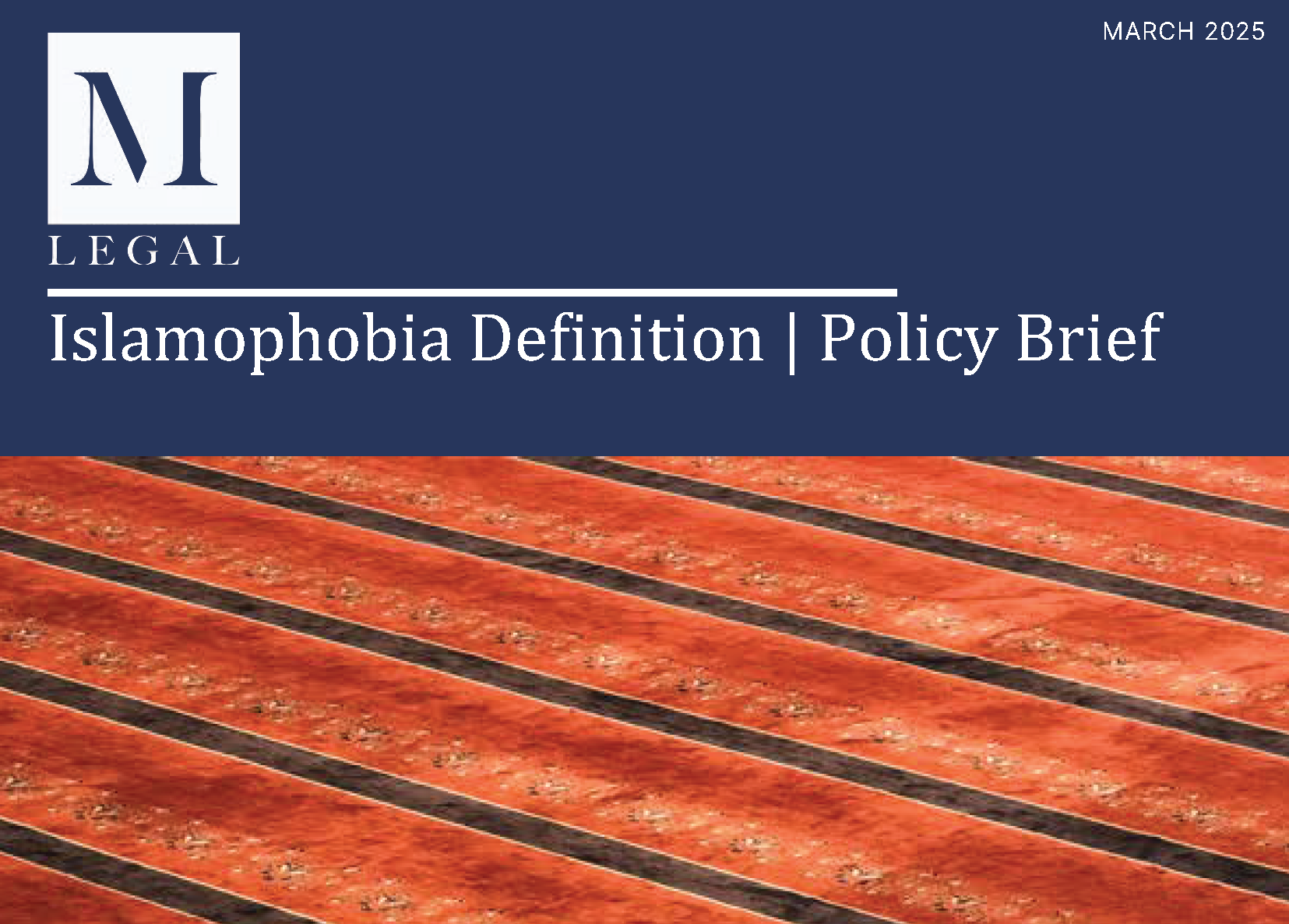
Like other forms of bigotry, Islamophobia targets its victims as a group and operates in three inter-related domains – othering, discrimination and hostility, each with their own manifestations that require separate and specific provisions to address them effectively.3 Islamophobia is a form of religious bigotry, racial bigotry and a complex combination of both – ie, racialised religious bigotry.4 Islamophobia can be perpetrated individually, institutionally and structurally (ie, at a societal and/or state level), experienced individually, institutionally and collectively as a community, and compounded by other characteristics – eg, gender, geography and socio-economic/citizenship status.5 As a form of religious/racial bigotry, Islamophobia today operates and is experienced in very similar ways to past and present forms of Antisemitism in the UK – all such forms of bigotry should be dealt with comprehensively and consistently.
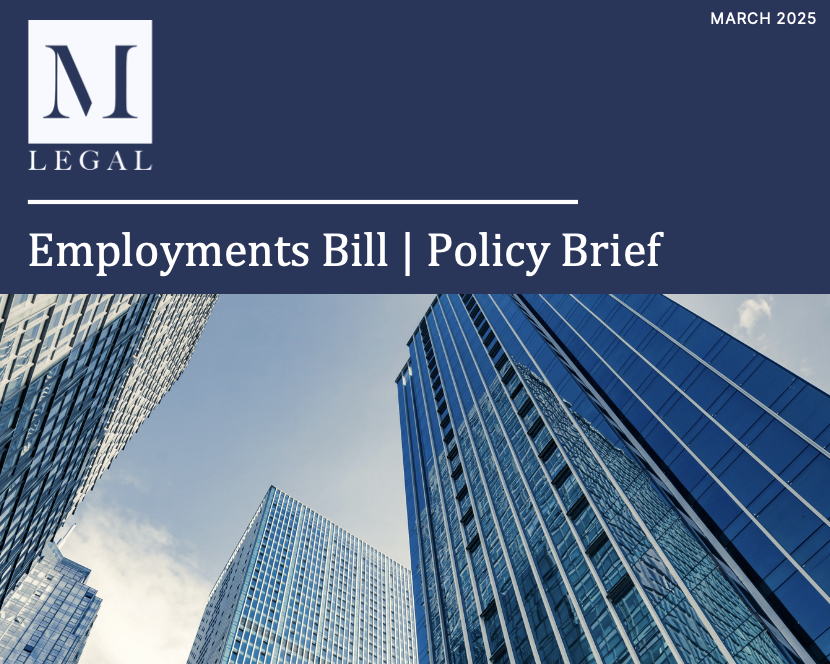
The Employment Rights Bill 2024–25 aims to improve workplace protections, but key clauses risk entrenching discrimination against British Muslims and other marginalised groups. MLegal warns the Bill inadequately addresses religious harassment, third-party abuse, and unfair dismissal related to political or religious expression. Without amendments, it could reinforce structural inequalities and suppress lawful views, such as pro-Palestinian advocacy. Reforms are needed to ensure equal protections and uphold freedom of expression in the workplace.
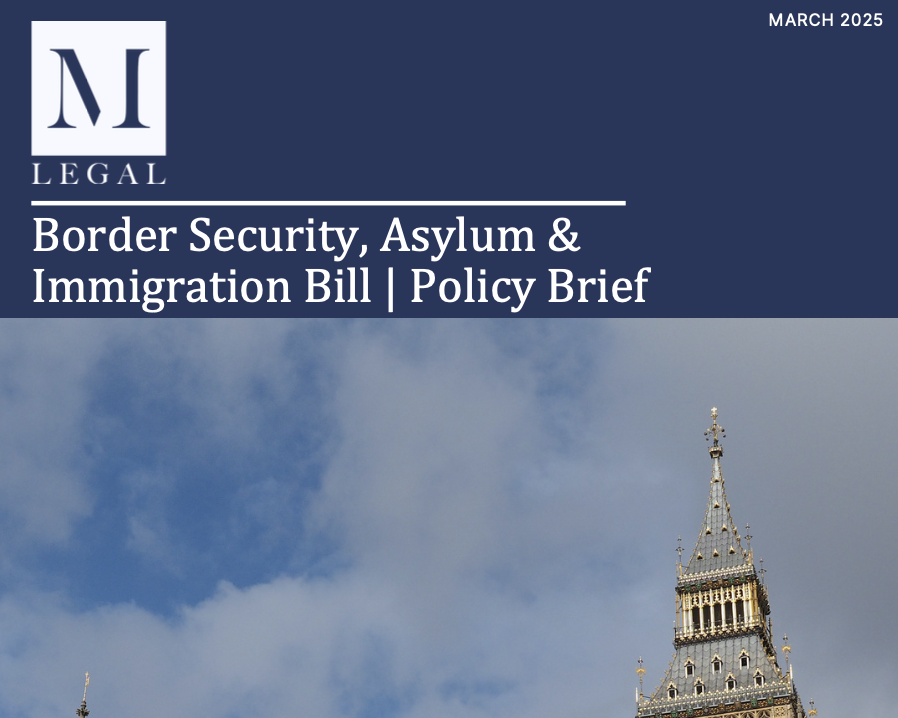
The Border Security, Asylum, and Immigration Bill proposes broad powers that risk criminalising asylum seekers and humanitarian aid, expanding surveillance, and enabling racial profiling—particularly against Muslims and marginalised groups. Clauses related to searches, data sharing, and crime prevention orders may erode privacy rights and blur lines between immigration and counterterrorism. MLegal warns these measures could institutionalise discrimination and calls for amendments to ensure legal safeguards, protect civil liberties, and uphold human rights.
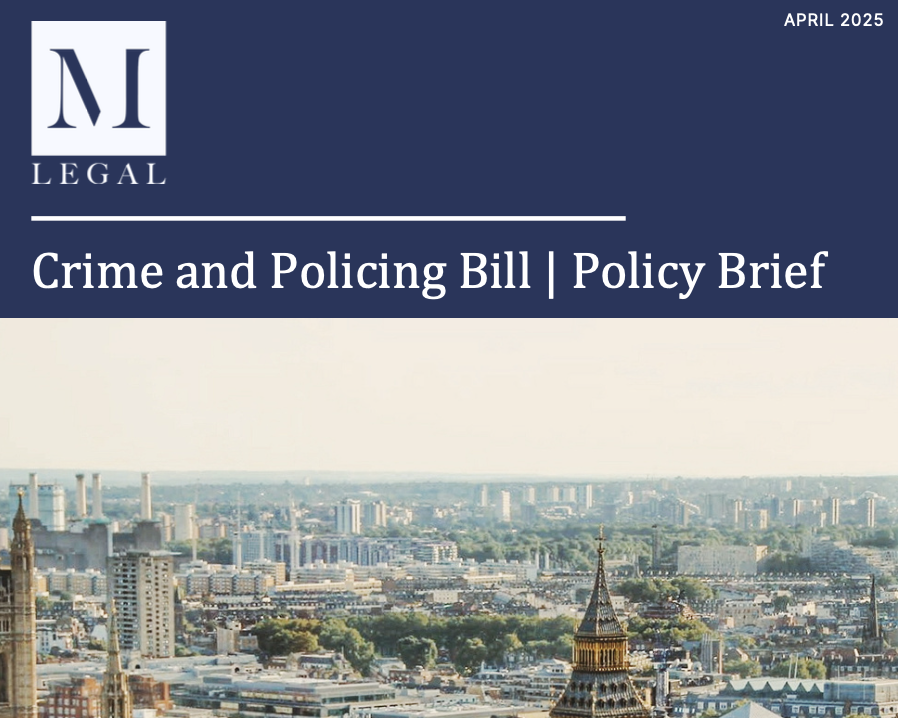
This briefing critiques the Crime and Policing Bill, highlighting how Clauses 86, 101, and 123 risk disproportionately harming marginalised communities, including Muslims and political activists. It raises concerns about the criminalisation of face coverings at protests, deportation risks linked to cautions, and the vague targeting of political or religious expression in detention settings. The document argues these measures lack safeguards and could undermine fundamental rights and freedoms. MLegal calls for key amendments to protect civil liberties and prevent discriminatory enforcement.
75+
Policy Papers
150+
Legal Cases Won
45+
Partner Organisations
10K+
Community Members
